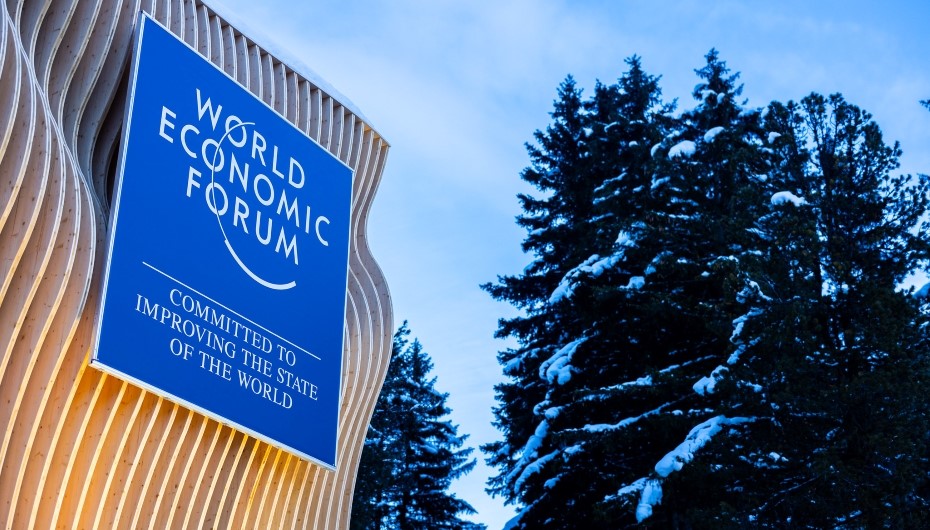Exeter experts head to Davos to drive action on climate and environment

Copyright: World Economic Forum/Ciaran McCrickard
The University of Exeter will aim to accelerate action on the climate and environmental crisis at the World Economic Forum annual meeting in Davos this week.
Academic experts will join the annual gathering of political and business leaders in the Swiss mountain resort to advance solutions to the climate crisis.
Professor Tim Lenton, from the Global Systems Institute at the University of Exeter, will use high-profile speaking engagements to explain to business and policy leaders how ‘positive tipping points’ – innovative technologies and policy agendas in areas ranging from renewable energy to sustainable agriculture – drive decarbonization by creating critical thresholds where small changes lead to significant, beneficial shifts in Earth systems.
This will build on the findings of the Global Tipping Points Report, as well as look ahead to the first Global Tipping Points Conference later this year.
Professor Gail Whiteman from the University of Exeter Business School will be launching Exeter’s new team aiming to translate cutting-edge science to help to accelerate action on nature and climate.
The Nature and Climate Impact Team, made possible through a generous philanthropic gift from André and Rosalie Hoffmann, will be looking to fill knowledge gaps across sectors to find climate solutions and drive change at the speed required to meet the Paris Agreement targets.
At the Team’s launch event on Monday 20 January entitled ‘Unleashing Impact: How Do we Turbocharge Action?’, a distinguished panel that includes Peter Bakker, President and CEO at the World Business Council for Sustainable Development; André Hoffmann, Vice-Chairman of Roche Holding AG and Co-founder of InTent; and Katie Gilbert, Managing Director of M&C Saatchi Group will ask how leaders can unleash impact in a changing geopolitical and economic landscape and turbocharge action.
Professor Whiteman, the inaugural Hoffmann Impact Professor, said: “I’m so excited to be back at the World Economic Forum in Davos and to be here with the University of Exeter’s new Nature and Climate Impact Team.
“With such a high concentration of global leaders from business, policy and civic society here, it’s the right place to be launching this bold new initiative, which will use innovative communication strategies to translate cutting-edge science to help to turbocharge action on nature and climate.”
Professor Whiteman is also the Executive Director of science communications platform Arctic Basecamp, which attends the World Economic Forum summit every year, pitching an Arctic research tent outside the annual meeting and holding events to show the extent of climate change in the Polar regions and its impact on the rest of the world.
Their dynamic programme of events held throughout the week will climax with ‘Performing Hope’ on Thursday 23 January – a spectacular musical performance of hope and optimism that aims to encourage and empower everyone to take action, fight climate anxiety and loss of hope.
The campaign to spur climate action by performing hope offers an antidote to apathy and encourages individuals, organisations and communities to harness the power of hope to make daily decisions and behaviours that align with the needs of the planet.
Other events include Science to Action (register here), a press conference and panel on the crucial role of science in leading the way to a sustainable, equitable future, which will include discussions on safe and just planetary boundaries, translating science into actionable solutions, and the business case for sustainability.



